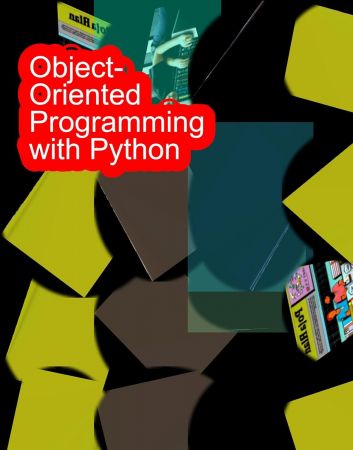Object-Oriented Programming with Python - is a comprehensive approach to programming
English | April 2, 2024 | ASIN: B0CZR5BWJF | 401 pages | PDF | 97 Mb
"Object-Oriented Programming with Python" is a comprehensive approach to programming that focuses on creating reusable, modular code by organizing it into objects and classes. Python, a high-level programming language known for its simplicity and readability, lends itself well to the principles of object-oriented programming (OOP).
In this paradigm, everything in the program is treated as an object, which is an instance of a class. Classes serve as blueprints for creating objects, defining their properties (attributes) and behaviors (methods). This allows for a more structured and organized approach to coding, making it easier to manage and scale projects.
The key concepts of object-oriented programming covered in Python include
Classes and Objects: Classes are templates or blueprints for creating objects. They encapsulate data (attributes) and functions (methods) that operate on that data. Objects are instances of classes.
Encapsulation: Encapsulation refers to the bundling of data and methods that operate on that data within a single unit, i.e., a class. This helps in hiding the internal workings of an object and only exposing the necessary functionality.
Inheritance: Inheritance allows a class to inherit properties and behaviors from another class, known as the parent or base class. This promotes code reuse and facilitates the creation of hierarchies of related classes.
Polymorphism: Polymorphism allows objects of different classes to be treated as objects of a common superclass. This enables flexibility and modularity in programming, as different objects can respond to the same message or method invocation in different ways.
Abstraction: Abstraction involves focusing on the essential qualities of an object while ignoring irrelevant details. It allows developers to create models that represent real-world entities in a simplified manner.
"Object-Oriented Programming with Python" teaches programmers how to effectively utilize these concepts to design and implement robust, maintainable, and scalable software solutions. Through hands-on examples, exercises, and projects, learners gain proficiency in applying OOP principles to solve real-world problems, making their code more modular, readable, and reusable. Overall, mastering object-oriented programming in Python opens up a world of possibilities for developing complex software systems efficiently and effectively.
Download from free file storage
Resolve the captcha to access the links!
Registered members don't get captcha ... just sayin
